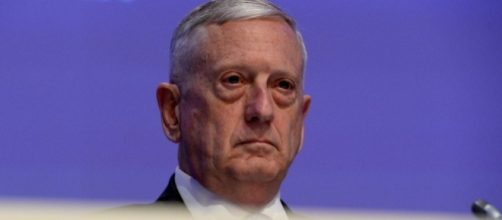U.S. Defense Secretary James Mattis said in Singapore that America will not accept china making unilateral and coercive changes in the South China Sea. This comes after intelligence confirms rapid militarization of artificial islands in the area that can disrupt the trade in the region.
In a report by the UK Express, they wrote that "In his speech at the annual Shangri-La Dialogue forum, General Mattis said, "We oppose countries militarising artificial islands and enforcing excessive maritime claims."
What will the U.S. Military do to hamper China's expansion?
Mattis sent a message from Singapore that the U.S.
will not accept China's actions. He also added that the U.S. Military will continue to enforce international laws in the region, which is a major multi-trillion dollar shipping route for dozens of countries. In another statement, U.S. Secretary of State Rex Tillerson stated that in order to halt China's expansion, the United States must send a clear signal to Beijing that militarization of artificial islands should be halted and that access to those islands will not be permitted.
The freedom of navigation operations has been the main method used by the United States to enforce international laws in the area. However, the recent naval operations were met by angered protests coming from Beijing.
However, Washington is adamant they will continue such operations despite Beijing's stern protests. The United States is also closing deals with Taiwan for weapons, which also angered China.
How will China respond to U.S. interference of South China Sea occupation?
In response to Mattis and Tillerson, Beijing sends a stern message that it will not stop asserting its claims over the islands in the area. China will also continue to enforce its presence in the region by increased naval patrols and installing possible anti-air and anti-ship systems on HainanIslandd and other islands near to the mainland.
China is basing its occupation on ancestral rights, which the United Nations have ignored. China's claim almost covers the entire South China Sea including the economic exclusion zones of the Philippines, Vietnam, Brunei and Malaysia.
The tension in the area is growing due to the insistence of the United States to impose international law and China's deliberate renunciation of such ruling against their claim.
How will U.S-China tensions affect the Korean crisis?
Each distasteful encounter between the U.S. and China over the South China Sea pushes them farther from cooperating to stop North Korea's nuclear ambition. Kim Jong-Un is sending out threats that the missile tests and nuclear research will continue. Though the United States is sending a lot of firepower to the area, the only way to effectively stop North Korea without war is having a cooperative China step in and mediate; a possibility that is slipping slowly and slowly away from reality.


